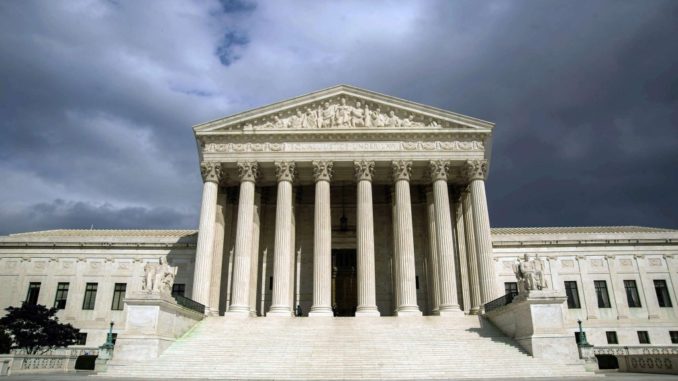
This week, Texas and the 25 other states challenging the President’s executive actions on immigration filed their brief with the Supreme Court in United States v. Texas. The brief attempts to defend the Fifth Circuit’s decision to block expanded DACA and DAPA from being implemented, but instead makes entirely confusing arguments and sets forth inaccurate statements about immigration law.
The Texas brief begins by spending a significant amount of time on the issue of standing, or the legal capacity to bring the lawsuit. While the states claim four different ways that they have standing in this case the lower courts found that Texas has standing to sue because of additional costs the state might incur to issue drivers’ licenses to individuals granted deferred action. As the states note in the brief, “Texas would lose over $130 per license… Texas therefore would lose millions of dollars if even a small fraction of DAPA-eligible aliens applied for driver’s licenses.” The Administration states in its brief, filed earlier this month, that these claims “are nothing more than allegations of indirect or incidental effects from the [DAPA] Guidance, not invasions of any legally-protected interest under the Constitution.” In fact, “virtually any administration of federal law by a federal agency could have such effects.”
As the brief continues on, the states try to distinguish expanded DACA and DAPA from other ways in which the immigration agencies may set policy priorities or exercise prosecutorial discretion. In fact, they do not dispute that the president can create enforcement priorities for removal. The brief even goes so far as to say that, “The Executive has been free all along to issue ‘low-priority’ identification cards to aliens.” What the states object to, and claim is unlawful, is that those who would obtain expanded DACA and DAPA would get work authorization and what they call “lawful presence.” This objection reflects a clear misunderstanding of immigration law.
As Melissa Crow, Legal Director of American Immigration Council, previously explained,
“Well established legal authority makes eligibility for employment authorization automatic for people who receive deferred action. The states’ argument that the government overstepped its bounds by rendering deferred action beneficiaries eligible to work ignores the fact that eligibility stems not from DAPA or expanded DACA, but rather from longstanding, independent legal authority.”
With respect to the “lawful presence” claim, Crow stated, “A grant of deferred action does not confer any other type of lawful immigration status, enforceable legal rights, or an ability to remain permanently in the United States.” Rather, according to Crow, “‘lawful presence’ is merely a reflection of [the government’s] decision to grant a favorable exercise of prosecutorial discretion.” “Lawful status” and “lawful presence” are two distinct concepts.
In an article published this week, immigration attorney David Leopold further explained that “the concept of ‘lawful presence’ does not exist as a legal concept in the sense that” Texas uses it. Leopold pointed out that the states’ argument that expanded DACA and DAPA unlawfully transform an unlawfully present noncitizen into a noncitizen with lawful immigration status is simply wrong as a matter of law.
Now that the states have filed their brief, those who wish to file an amicus brief (a friend of the court brief) in support of the state’s position have until April 4, 2016 to file.
Oral arguments are scheduled for April 18, 2016, and the Court will likely issue a decision before its current term ends at the end of June 2016. For the sake of the immigrant families whose lives are riding on this decision, let’s hope that the Court makes clear that President Obama, like every President before him dating back to Eisenhower, has the authority to take executive action on immigration.
Joshua Breisblatt is a Policy Analyst at the American Immigration Council.
